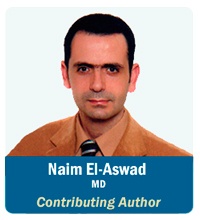 [3 MIN READ]
[3 MIN READ]
Over the past few blogs, I have written about the interaction of the physician and the patient. I have also discussed that physician satisfaction is the force that drives the practice of medicine. I am hoping that I have made a strong case for the topic today. But what is exactly the “missed obvious?”
There has been a tremendous push toward patient satisfaction.
So great was the push that payment structures, financial assistance, and government evaluations of hospitals and physicians were based on it. What is astonishing is that studies show patients to be more interested in how the physician interacted with them than how he or she treated them.
“In April 2013, researchers at Denver-based Vanguard Communications analyzed 3617 online reviews of 300 internists and Ob/Gyns. Slightly more than one half (53%) of the posts were negative. Patients who posted negative reviews were 4 times more likely to complain about a healthcare provider's indifference, bedside manner, or customer service than about his or her medical skills. 43.1% included complaints about poor bedside manner; 35.3% included complaints about poor customer service; and 21.5% included complaints about medical skills, such as false diagnoses and surgical mistakes.”
It is not up to us to debate the reality of how patients perceive their healthcare needs.
It is our responsibility to adapt, while keeping the most important parts of our oaths alive and well: Do no harm, and help.
 If you look at the history of medicine, the practice of medicine has changed from a paternalistic approach to patient-centered care. The problem is that physicians have not yet fully developed or accepted that change.
If you look at the history of medicine, the practice of medicine has changed from a paternalistic approach to patient-centered care. The problem is that physicians have not yet fully developed or accepted that change.
There are many reasons cited by literature; they could be due to training, cultural differences, the nature of the practice, or physician expectations to name a few. Whatever the reason, we are not here to fight for the “old ways.” Rather, we need to adapt, evolve and conform to the new ways. But no matter the approach, if the new way is truly becoming patient customer care, then medical training must follow suit.
However, while there is a focus on making physician practice more patient-centered care, there needs to be equal if not more attention paid to also making the practice of medicine physician-centered. Looking at the retail and business worlds, you will be inundated with quotes and tips on the best customer service. Perhaps the one that I can rely on in its simplicity and power is the following:
“Customer service is an attitude, not a department.” -Anonymous
Let me highlight the word “attitude.” Knowing that attitude is one of the most important factors for delivering customer service, it would be logical then to focus on making sure the physicians have the right attitude.
There is a problem though; a big one: physician burnout. This epidemic has afflicted more than 50% of all physicians. Look at prior blogs to review the effects of burnout on physician attitudes, service and care; this epidemic feeds itself.
Burned out physicians usually provide the poorest of service, which in turn provides lousy feedback, reduced renumeration, and more distance from the purpose of medicine. This results in more burnout.
But the issue goes way beyond burnout. You see, if we are the ones delivering patient customer care, then shouldn’t training and support for physicians be the focus?
If physicians are the vessels of the practice of medicine, should we not make sure they are not sinking?
If patient customer care depends on physicians’ attitudes, then shouldn’t we focus on helping the physicians not only develop that attitude, but maintain it in the world of medical practice that sees half of them burned out?
And why have we developed rules and regulations, trainings, and approaches that absolutely contribute and nearly guarantee burnout?
We simply cannot and should not expect patient-centered care and patient customer service to excel when the workforce is suffering. As physicians, we are driven by our moral compass, our oath, and our primal desire to help to make sure that our calling is answered. But we are doing so at too high an expense: our own wellbeing, our own survival, and our very own lives and existence.
If we believe these words are too ominous, that this reality is too dire, or this outlook is too bleak, perhaps we need to take a closer look at physician burnout, its causes, its effects, and the state of the practice of medicine.
If we do that and still cannot see the dark reality, then maybe we truly are “missing the obvious”!


